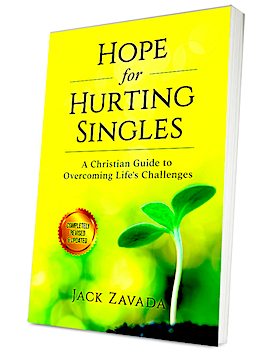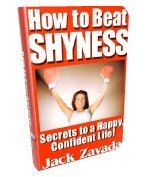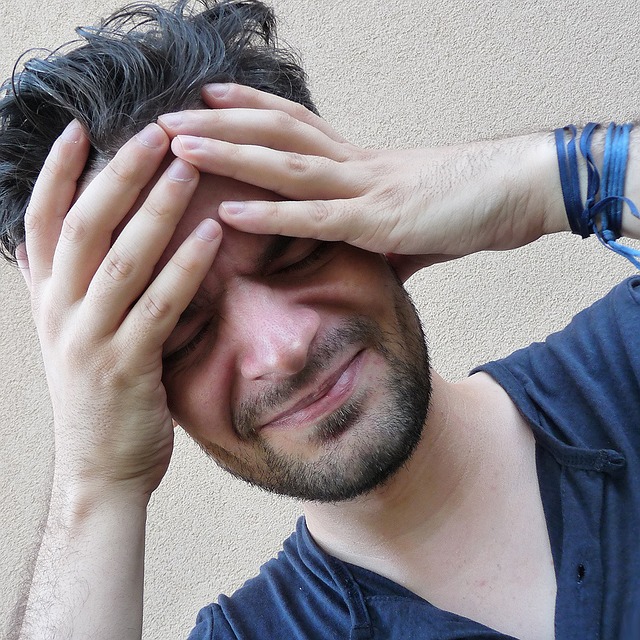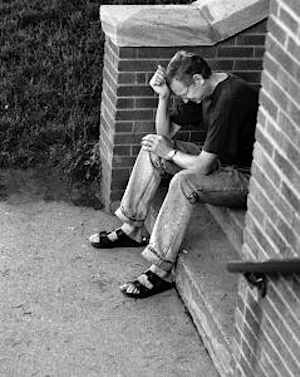Worry can kill your spirit

Worry is the junk food of the mind, and single people—myself included—know a lot about junk food. While it's enjoyable, too much of it can kill you.
We don't think of fretting and working ourselves into agitation as enjoyable, so why do we keep doing it? Because there's a certain satisfaction in it.
When we worry, we labor under the illusion that we're actually doing something about our problem. We're thinking about it. Never mind that we're not necessarily trying to come up with a solution. Rather, we're playing a bunch of "what if" scenarios in our mind and beating them to death.
It's hard to recognize that worry is harmful. Again, it feels as if we're doing some constructive thinking when just the opposite is true.
The human mind has a love/hate relationship with this tension. We want to stop doing it but feel we'd be lost without it. After all, when trouble comes, what's the first thing we do? We worry about it, like a knee-jerk reaction.
How can you and I, as single people who don't always have someone to talk things out with, break this maddening habit?
Good emotions, bad emotions
None of us wants to be like Commander Data on Star Trek: The Next Generation, an emotionless android who couldn't feel anything. On the other hand, we all recognize that some emotions are helpful and some are harmful.
Most of us have learned to control our anger. Sure, we may get mad and even stew about something for days, but we're wise enough not to punch our boss in the nose, even if we really feel like it. We know the consequences of an extreme act like that.
Worry, however, is socially acceptable. In fact, it's sometimes even encouraged. Authority figures may say, "You should worry about…" or "if I were you, I'd worry about…"
"Be concerned" is a better phrase. It means to be conscientious about, to the point of taking constructive action, and there's an element of reason in concern.
But this isn't about semantics. It's about stopping an activity that's hurting your life. For most of us, fretting about the future has become so natural we'd feel lost without it.
How do we kick the habit?
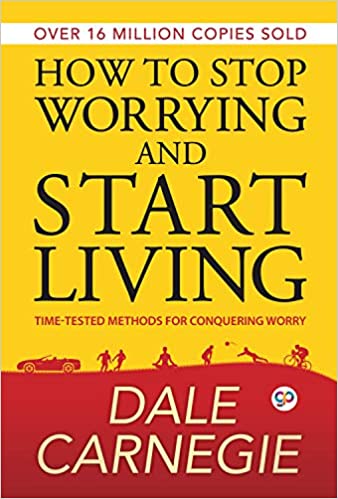
Hands down, the best book I've ever read on this subject is How to Stop Worrying and Start Living, by Dale Carnegie. Although it was written decades ago, the principles in it are timeless, as well as down-and-dirty practical. They work and work well.
If you haven't read this book, I urge you to check it out of your public library or to buy a copy to keep in your personal library. I read it 40 years ago and reread it a few weeks back. It has helped me immeasurably.
One of the techniques Carnegie recommends is to live in "day-tight compartments." That means living one day at a time. Period. The principle is that you put your focus on today, without regretting yesterday or becoming agitated about tomorrow. Jesus may have originated this rule 2,000 years ago when he said:
“So don’t worry about tomorrow, for tomorrow will bring its own worries. Today’s trouble is enough for today." (Matthew 6:34, NLT)
I used this principle when I was 25 years old, taking cobalt radiation treatments for cancer. The treatments were grueling. They made me so sick and weak I could hardly stand up. My goal each day was simple: Make it to bed time. I learned to live in day-tight compartments.
Carnegie also recommended using a "worst case scenario" idea. He suggested you imagine the worst thing that could possibly happen, then decide, calmly and rationally, how you would deal with that. During my cancer treatments, the worst case scenario was that I could die. Nobody wants to die, and I certainly didn't, but that notion put my faith to the test. I was a Christian. Jesus had saved me. If I died, I would go to heaven. At 25 years old, I wasn't ready to die, but if that happened, Jesus had me covered.
You'll be glad to know I didn't die. Nor did I die in 2010, when I had cancer yet again. And, because I had learned a lot about worry in those intervening 34 years, I didn't worry (much) that second time.
These are just two of the priceless truths in How to Stop Worrying and Start Living. Get yourself a copy. It's an investment in a happier life.
Don't worry, be happy?
Life is more complicated than Bobby McFerrin's 1988 hit song, "Don't Worry, Be Happy." Bad things have always happened to good people and they always will.
Within that bouncy song is a kernel of truth, though. We can decrease worry by replacing it with a better habit. Let's take a look at some alternatives.
When we find ourselves in a scary situation, our first reaction is to believe we're helpless, but that's not always the case. As I write this, in April 2020, the world is in the grip of the coronavirus pandemic. Many people have died and many more will.
That said, the best medical minds on the planet gave us some common sense guidelines to help us protect ourselves and reduce our odds of becoming infected. Much of the country is now on lockdown. We can leave our homes to get groceries and medicine, but most businesses are closed.

Smart people are complying with the guidelines. Dumb people, and this is hard to believe, are acting as if no problem exists and are congregating in groups as usual. These adults are more irresponsible than children.
It's impractical for most of us to stockpile food and other supplies, and really, it's not necessary. We can, however, take steps to prepare for other unexpected predicaments. Every single person should have an emergency fund so you don't have to beg money from family and friends for car repairs or medical expenses. This article explains how.
Another step we can take is to live mindfully to prevent future problems. That means taking care of your health and avoiding things that can harm you. This seems like simple common sense, but substance abuse is so widespread today that millions of people wish they had taken that pre-emptive step years ago.
Finally, when an unavoidable situation comes up, we can analyze it slowly and objectively to list what solutions or approaches are possible. Sometimes another trusted person can suggest something you hadn't thought of.
The calmest man on earth
The Bible records one instance of Jesus worrying: in the garden of Gethsemane on the night before his crucifixion. He became so upset he sweated blood, the gospels say.
He knew the kind of death he would be facing, the excruciating torture he would endure. Don't forget that he was fully human. He was also fully divine. In the garden that night, he submitted his will to that of his heavenly Father, the same as we have to do. From that moment on, Jesus was the calmest man on earth. He went to his death bravely, suffering mockery and public execution as the lowest form of criminal when he was, in fact, the Son of God.

His secret? He trusted God unconditionally. He knew his Father's promises were always true. Jesus knew that no matter what happened, he was safe under God's care. It may have felt as if God had abandoned him, yet God never took his eye off him.
Victory came in the tomb. God raised Jesus from the dead and gave him a healed, glorified body. He can never die again.
Trusting God is hard, but Jesus is our example to follow in everything. What God did for him, he will do for you also if you are a believer. Don't believe your doubts; they come from Satan. Don't believe your fears.
Believe God and what he tells you in the Bible. Yes, worries will come, but they are lies. God is real. God loves you, and in the end, that is what will save you.
Worried sick? Here's what to do...
Is Christianity practical in today's world?
Down to earth help for the single life
Practical.
Positive.
Proven.
$10.99 in paperback from amazon.com. $3.99 for Kindle.
